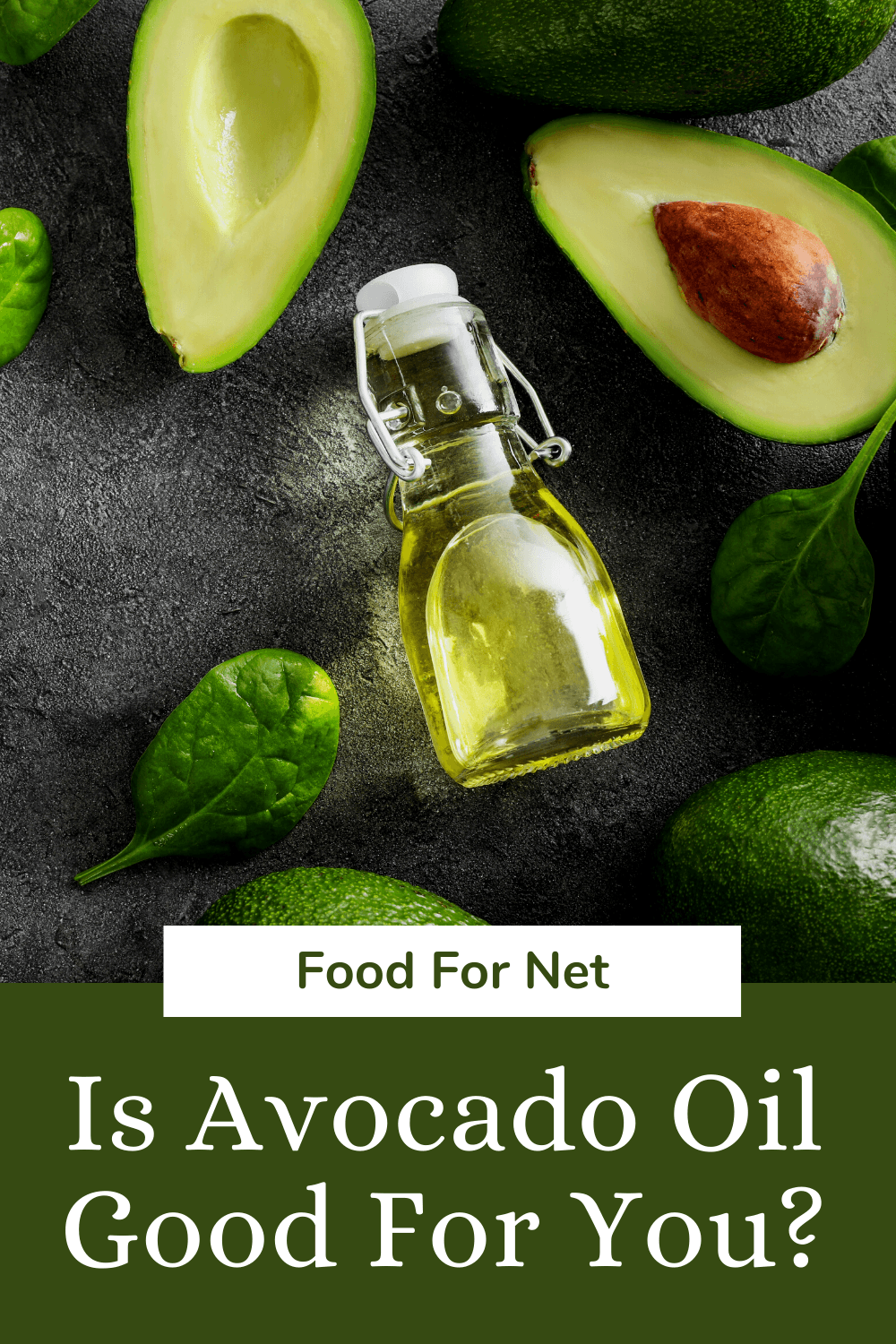
Avocados are incredibly popular for their taste and texture, plus they’re also a fantastic source of healthy fats. It’s hardly surprising, then, that there are so many avocado recipes (we can’t forget about the famous avocado toast). Avocado oil shares some of those same healthy compounds and is also excellent for cooking. But, is avocado oil good for you?
There are plenty of reasons why it could be. Like olive oil, avocado oil is often minimally processed. It certainly isn’t refined in the way that vegetable oil and sunflower oil are, making it an appealing choice. It also has a high smoke point, so avocado oil is an easy choice for cooking.
Of course, we are still talking about oil here, so there’s a decent amount of fat present. You’ll need to be careful with your portion size to make sure that you see benefits from the oil, rather than weight gain.
Is Avocado Oil Good For You?
- Types Of Avocado Oil
- Benefits Of Avocado Oil
- How Avocado Oil Can Be An Issue
- Avocado Oil Versus Olive Oil
- What Does Avocado Oil Taste Like?
- Final Thoughts
Types Of Avocado Oil
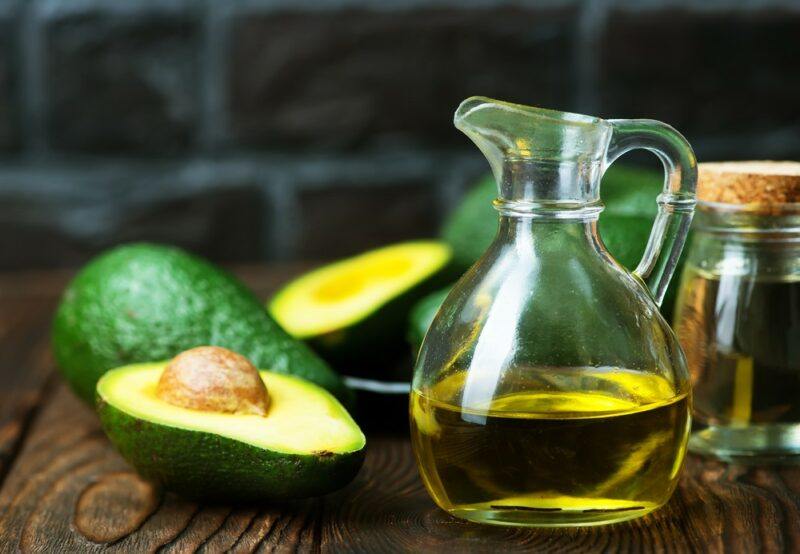
Avocado oil is a relatively unprocessed ingredient, one that’s simply made by pressing avocados to obtain the oil.
To get the most out of avocado oil, you’ll need to look for unrefined avocado oil. The best products will use cold pressing to extract the oil.
Some companies use the term virgin avocado oil to show that has been through mechanical extraction and filtering, and nothing more. Specifically, chemical solvents weren’t used in any part of the process.
Cold pressing processes keep the temperature of the oil low, which helps to keep the natural flavor, color, and healthy compounds intact.
In contrast, refined avocado oil is often extracted using chemical solvents. It may be processed in other ways too, like by bleaching and deodorizing the oil. All such processes risk decreasing the healthy compounds in avocado oil, which could lead to fewer health benefits.
Benefits Of Avocado Oil
An Excellent Source Of Healthy Fats
As we’ve learned more about nutrition, it’s become clear that fat isn’t the enemy at all. Instead, it’s simply a source of energy. What’s more, the right types of fat can even provide health benefits.
Avocado oil is incredibly powerful in this regard, as it is high in monounsaturated acids, including oleic acid. You might have heard about oleic acid before, as this is the same healthy fat that makes olive oil so popular.
The healthy fats in avocado oil have been linked to many different benefits, including the chance to lower blood pressure levels and reduce inflammation. Monounsaturated fats are even associated with decreased LDL cholesterol, meaning that some fatty foods (including avocados and avocado oil) may decrease your heart disease risk, rather than increasing it.
Low In Saturated Fat
Avocado oil does contain some saturated fat – a little under 2 grams per tablespoon. However, this is a tolerable amount, as the American Heart Association suggests using oils with less than 4 grams of saturated fat per tablespoon.
The low saturated fat content should help to keep your cholesterol levels where they need to be.
In fact, choosing options like avocado oil and olive oil over saturated fat rich products like coconut oil and butter is seen as a powerful way to decrease heart disease risk (although, it must be said that the claim is under intense debate).
Contains Plenty Of Antioxidants
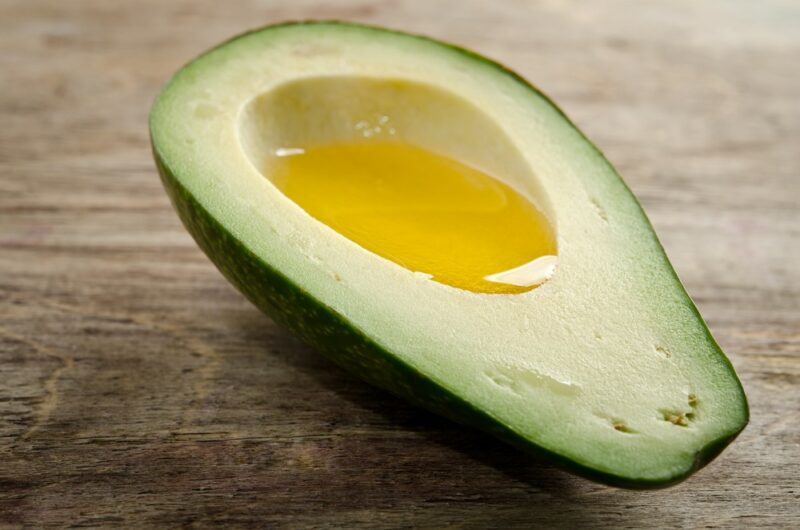
Plant-based foods often provide you with many different nutrients, along with antioxidants. Each of these compounds can have a host of impacts in the body.
Two notable examples are vitamin E and lutein, both of which function as antioxidants. As antioxidants, they may protect you against free radical damage and reduce the risk of disease.
You don’t get as many nutrients in avocado oil as you do in avocados themselves. Still, it’s not like you need to choose one or the other. You could easily include both ingredients in your diet at different times.
The High Smoke Point
Avocado oil is a fantastic choice for cooking, as it has a high smoke point. With highly refined oil, this smoke point can be up to 520°F, which is seriously impressive.
The smoke point is lower for less refined versions of the oil, often around 480°F. Even then, the smoke point is considerably higher than other oils.
The high smoke point means you can cook with avocado oil at a high heat without a high amount of advanced glycation end products (AGEs) being produced. Avocado oil also has a mild flavor, so it’s no wonder that the oil is so popular for cooking.
Can Promote Nutrient Absorption
We often talk about the benefits and risks of foods individually, independent from other foods. Yet, some of the most interesting outcomes come from how different foods interact with one another.
Fats are incredibly important here, as they help to increase the absorption of some nutrients, including vitamins A, E, and K. This effect means that you can get more nutrients from a salad with an oil-based dressing than from one with a fat free dressing.
You’ll still need to keep an eye on your serving size, of course. Drenching your salad in oil isn’t going to help matters. Still, there’s clearly no need to feel guilty about enjoying your favorite salad dressing.
How Avocado Oil Can Be An Issue

Avocado oil is a low risk ingredient. There aren’t many problems to think about, but there are still a few that are worth mentioning.
The Omega 6 To Omega 3 Ratio
The ratio of omega 6 to omega 3 fatty acids is important in any type of food, particularly cooking oils. When this ratio is heavily skewed in favor of omega 6, inflammation tends to increase.
Most of us already consume more omega 6 than we need and not enough omega 3, giving us a less-than-desirable ratio to begin with. The wrong oil can make this issue worse.
Avocado oil isn’t the ideal choice here, as it does contain more omega 6 than omega 3.
Thankfully, however, avocado oil mostly consists of monounsaturated fats, so there isn’t that much omega 6 or omega 3 present (only around 2 grams in a tablespoon of avocado oil). This means the omega 6 fats shouldn’t be a serious problem unless you’re using a large amount of avocado oil regularly.
May Interact With Blood Thinners
Avocado oil may have blood thinning effects, partly due to compounds called salicylate. This effect is generally a good thing and can reduce the risk of blood clots. However, if you’re already taking blood thinning medication or have a bleeding disorder, then anything that promotes blood thinning could be a problem and may even be dangerous for you.
The Price
Like olive oil, avocado oil is more expensive than processed vegetable oils, including canola oil. This isn’t too surprising, as avocado oil is produced in comparatively small quantities and production isn’t as efficient as for vegetable oils.
The price is high enough that some people mightn’t be able to afford avocado oil – or certainly can’t afford to use it as their main type of cooking oil.
It’s Easy To Use Too Much
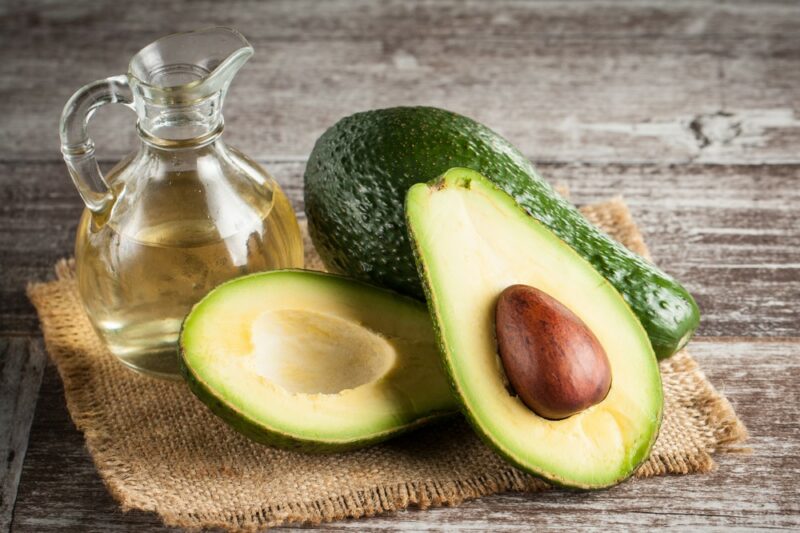
If the serving size is right, then avocado oil could easily improve your health. One problem is that oil is mostly just fat, which makes it calorie dense. You end up with around 124 calories per tablespoon.
The calorie content isn’t too bad for the benefits that you get, as long as you keep to a reasonable serving size. However, this is where things get tricky. Most of us don’t measure out oil every time we use it. We tend to make judgments by eye instead, which often leads to overpouring.
Thankfully, the issue is easy to avoid by simply measuring out avocado oil when you use it.
You could also try to decrease your serving little by little over time. After all, you don’t need to use much oil to see the benefits we’ve been talking about here.
Avocado Oil Versus Olive Oil
Avocado oil and olive oil are both seen as incredibly healthy options. They’re both sources of heart healthy fats, contain plenty of interesting plant-based compounds, and are much less refined than alternatives like canola oil.
The two types of oil have a similar fatty acid profile, along with a similar amount of calories per serving.
One of the biggest differences is the smoke point. Avocado oil has a higher smoke point, which makes it a better choice for high heat cooking.
What Does Avocado Oil Taste Like?
Fat itself doesn’t have flavor. It’s the other compounds in fatty foods that provide the taste that we love so much.
Because avocado oil is more than 99% fat, it doesn’t have much flavor at all. There is a slight buttery and nutty undertone, but this is so subtle that most people simply describe the oil as tasting ‘clean’ instead.
Final Thoughts
Whether avocado oil is good for you or not really depends on how you approach the question. As cooking oils go, yes, avocado oil has many benefits – it provides healthy fats, is minimally processed, and has a high smoke point. That combination of features makes the oil an exceptional choice for cooking.
Even so, we are still talking about oil, meaning that avocado oil is pretty much pure fat and is calorie dense. While a little bit of the oil can be good for you, too much certainly won’t be. As such, it’s important to keep a close eye on the amount of avocado oil that you use. Don’t go overboard even if it is arguably healthier than most other types of oil.
Frequently Asked Questions
Can You Use Avocado Oil For Cooking?
Avocado oil is actually one of the best options for high heat cooking, as refined avocado oil has a higher smoke point than most other types of oil. Even non-refined avocado oil is impressive.
This means you can easily use avocado oil in the place of any cooking oil (even if you’re deep frying).
Is Avocado Oil A Seed Oil?
While most oils are extracted from seeds, avocado oil is actually made from avocado flesh instead.
Does Avocado Oil Go Bad?
Like all oils, avocado oil will eventually go bad. In particular, it oxidizes and becomes rancid. When this happens it has a stale and somewhat chemical scent. The texture, color, and flavor often change as well.
This can be a little difficult to identify at first, as the changes are gradual. Early on, you might only be able to tell by comparing the smell to that of a newly opened bottle.
Thankfully, avocado oil has a decent shelf life. When unopened, it normally lasts for a year or even two. Once opened, refined avocado oil can last anywhere from 9 to 12 months, while unrefined oil lasts around 4 to 6 months in the pantry and a bit longer in the fridge.
Is Avocado Oil Neutral?
Neutral oils are basically flavorless, which makes them extremely versatile. Refined avocado oil has a mild flavor, so it often falls into this category. You can even use it instead of vegetable oil in many situations.
Unrefined avocado oil is a little different. This has a more robust flavor and isn’t as versatile.
Can Avocado Oil Be Used For Baking?
Even unrefined avocado oil can be used in baking, as the flavor isn’t strong enough to be noticeable in the final product. You can simply use a 1:1 substitution of avocado oil for the oil suggested in your recipe.
If you’re concerned about the flavor, simply stick with refined avocado oil instead.





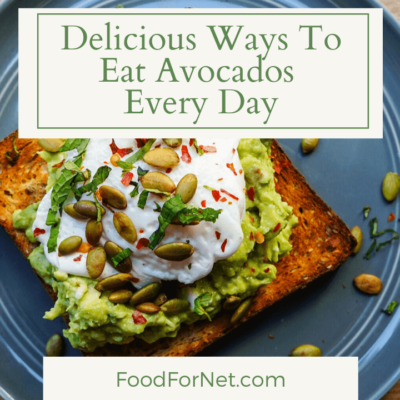


 15 Best Foods For Cold Sores, Plus Three Meal Ideas For Fighting Cold Sores Immediately
15 Best Foods For Cold Sores, Plus Three Meal Ideas For Fighting Cold Sores Immediately
Leave a Reply